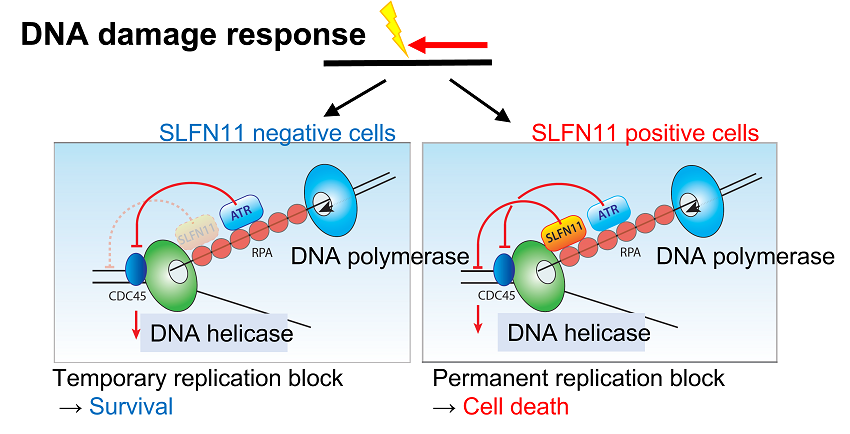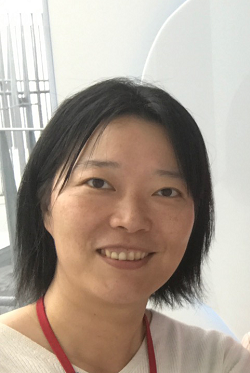HOME  Research Projects
Research Projects  DNA damage response Project
DNA damage response Project
DNA damage response Project

The integrity of the human genome, comprising ~6 billion base pairs, is maintained partly by DNA damage response (DDR). Upon DNA damage, cells employ DNA repair pathways and activate cell cycle checkpoint to survive. On the other hand, other pathways can kill damaged cells to eliminate cells with genome instability. DDR is provoked by DNA-damaging anti-cancer agents such as platinum derivatives. This project mainly focuses on Schlafen 11 (SLFN11) which can sensitize cancer cells to a broad range of DNA-damaging agents. SLFN11 irreversibly blocks replication under DNA damage, explaining why DNA-damaging drugs more efficiently kill SLFN11-positive cells than SLFN11-negative cells. Replication fork degradation, tRNA cleavage, and impairment of translation are other mechanisms of SLFN11-dependent cell killing. Since SLFN11 is inactivated in ~50% of cancer cell lines and in a large fraction of tumors, SLFN11 expression is feasible to apply as a predictive biomarker of drug response and resistance in patients. We are working on comprehensively understanding SLFN11 and developing SLFN11 for clinical applications.
Publication

Junko Murai
Project Associate Professor
- List of research projects
- Postembryonic development in crustaceans
- Molecular Anhydrobiology Project
- Protein Materials Project
- Food metabolomics project
- Functional RNA Analysis Project
- 3D Cell Atlas Project
- Bio-Functional Design Project
- Molecular Oncology Project
- Medical Informatics Project
- Metabolomics Project
- Bioenergetic regulation Project
- Cancer Metabolism Project
- Tsuruoka Metabolomics Cohort Study (TMCS) Project
- Environmental systems biology Project
- Drug delivery system project
- Extracellular vesicle molecular function research Project
- Gut Design Research Project
- Stolen-phenotype biology Project
- DNA damage response Project
- Bacterial regulatory RNA project
- Synthetic Biology Project



